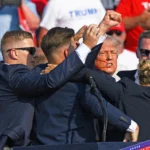A growing perception of insecurity in Chile has led to increased public support for mano dura (iron fist) policies and a stronger stance on migration, according to several surveys conducted in the country.
In 2022, a record 90.6% of people said they believed crime had increased, according to the National Urban Citizen Security Survey (Encuesta Nacional Urbana de Seguridad Ciudadana – ENUSC) published last month. This rate was even higher in the Arica and Parinacota and Tarapacá regions, which have the highest rates of “common crimes” that are highly reported and sources of public concern, like robberies and injuries, as well as homicides linked to organized crime.
Although common crime in Chile increased slightly in 2022 compared to 2021, the figures are still lower than those recorded in the years before the COVID-19 pandemic, according to victimization data from the ENUSC.
However, Chile recorded its highest-ever homicide rate in 2022, increasing 46% compared to 2021 to reach 6.7 killings per 100,000 inhabitants. In the regions of Arica and Parinacota and Tarapacá, this rate reached 17.1 and 13.4 per 100,000 inhabitants, respectively. The Santiago metropolitan area’s murder rate of 10.1 also exceeded the national average.
The Public Prosecutor’s Office estimates that 57% of homicides committed in the country are linked to organized crime. This percentage is also significantly higher in the regions of Arica and Parinacota (82%), the eastern sector of Santiago’s metropolitan area (71%), and the Tarapacá region (70%).
The majority of Chileans have believed the fight against crime and drug trafficking should be the government’s top priority since early 2022. At the end of March 2023, 71% of respondents to the Cadem public opinion survey said President Gabriel Boric’s government should make this topic its primary focus. This sentiment was backed up further by another public opinion survey published on November 20 by the Center for Public Studies (Centro de Estudios Públicos – CEP).
Support for ‘Iron Fist’ Policies
Forty-five percent of those surveyed by the CEP believed that “all public and private liberties should be abolished to control crime,” compared to 16% who answered the opposite.
In April 2023, El Salvador President Nayib Bukele was the highest-rated president in Chile among 12 world leaders, according to another survey conducted by Cadem. Nearly 80% of Chileans have a positive opinion of Bukele, despite reports of human rights violations under his hard-line anti-gang policies.
“There is always tension between security policies and individual freedoms,” said Paula Medina González, researcher at the Center for Criminological Research of Criminal Justice at the Central University of Chile. “But the people whose personal freedom is most at risk are citizens who belong to traditionally stigmatized sectors.”
The growing support for mano dura strategies is the result of fear and concerns that Latin American governments are ill-equipped to handle the more sophisticated and globalized forms of crime that are increasingly leveraging new technologies, according to Medina Gonzalez.
“When the perception of insecurity increases, this type of policy usually becomes more popular, so it is not unusual that this phenomenon is on the rise in Chile,” she added.
Criminalization of Migrants
According to the CEP, 70% of those surveyed believe that migrants increase crime rates in the country. Nearly 75% of respondents said that they have a worse image of migrants who arrived in the last five years than those who arrived before then. And 51% of respondents believe that less than half or none of the migrants who arrived in the last five years follow the law.
However, this perception contrasted with the 76% of respondents who described having positive interactions with migrants.
“People’s direct experiences with migrants are positive, but the ‘social construct’ around immigration, based on press coverage of relatively isolated cases, portrays migrants as the enemy, the other, or a criminal,” explained Medina González.
The arrival of foreign gangs such as Tren de Aragua, Venezuela’s most powerful mega-gang, as well as the use of the group’s name by copycats throughout the region, has also contributed to the criminalization of migrants in Chile, especially Venezuelans.
“When people don’t know all the facts and there are these dramatic incidents that grab their attention — like less common crimes, such as extortion or kidnapping — people take more notice and become concerned, because it’s hard to really understand the extent of the situation,” Olga Espinoza, a researcher at the Latin American Council of Social Sciences (CLACSO) and the University of Chile, told InSight Crime.
She added that “not all foreigners are part of criminal organizations, but sometimes these oversimplifications are created.”
In many cases, the migrants being criminalized have themselves been victims of Tren de Aragua, which specializes in migrant smuggling, human trafficking, and extortion.
More than other criminal activities, Chileans closely associate the migrant population with drug trafficking, according to Medina González, the researcher. Although the role of foreigners in crimes like drug trafficking has grown in Chile, 70% of those charged for homicides linked to gangs or organized crime groups in 2022 were Chilean citizens, while only 30% were foreigners, according to the Attorney General’s Office.
“Data from the Attorney General’s Office and the Public Defender’s Office indicate that foreigners in Chile do not commit these crimes at a higher rate than Chileans do,” said Medina González.
Source : Insight Crime
















